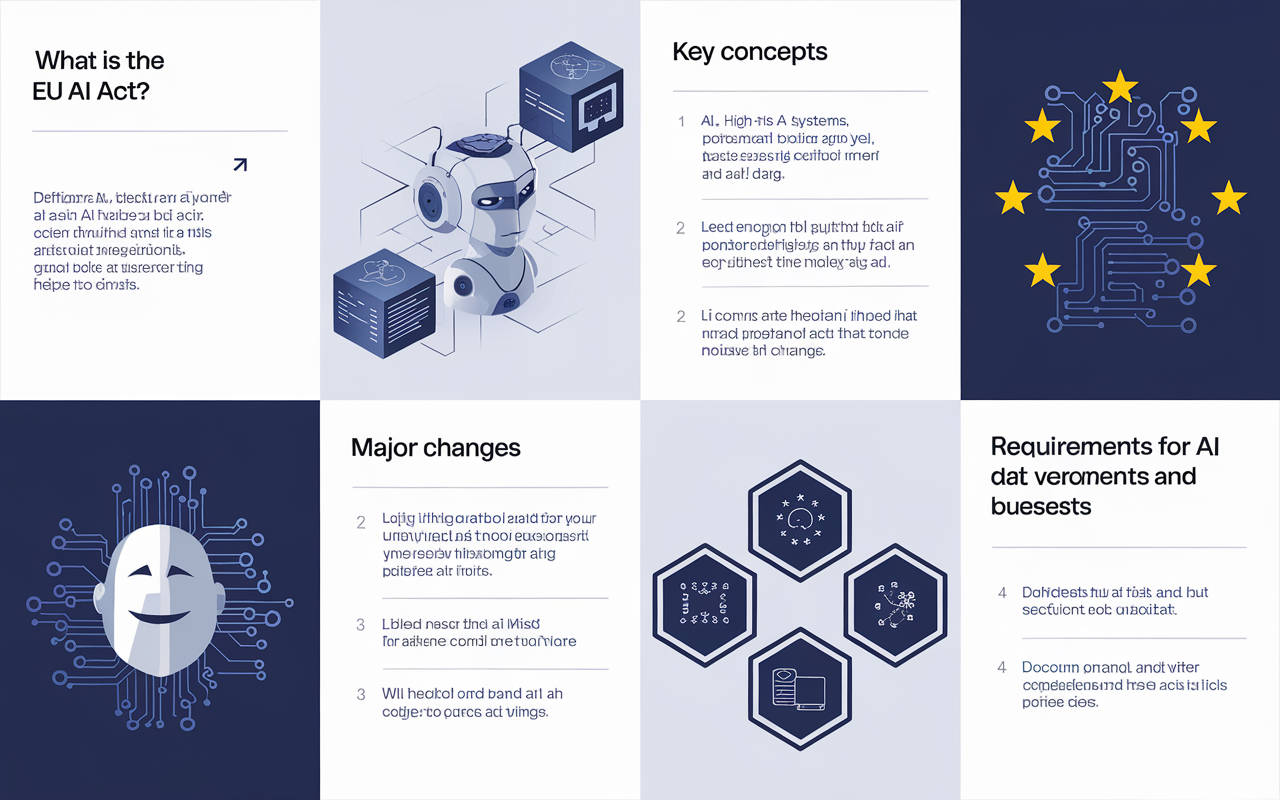Understanding the EU's AI Act: What AI Developers Need to Know 🤖🇪🇺
The landscape of artificial intelligence (AI) is rapidly evolving, and so too is the regulatory environment surrounding it. The European Union has outlined new guidelines under the AI Act, defining what constitutes an AI system and establishing a risk-based framework for its regulation. As these rules come into play, it's essential for developers and businesses to understand their scope and implications. 📜✨
What’s New? 🌟
The EU's guidelines, published recently, explain the criteria under which software systems will be considered as AI. This legislation aims to protect users by prohibiting high-risk AI applications while promoting innovation in a more secure environment. Non-compliance with the act can lead to hefty fines, reaching up to 7% of global annual turnover. Yikes! 💰
Key Highlights of the AI Act 🚀
-
Risk-Based Framework: The AI Act classifies AI applications based on their level of risk, from minimal to unacceptable. Applications deemed unacceptable are now completely banned within the EU. This means developers must critically assess whether their technology fits within this framework.
-
Guidance Documents: The EU has released a 13-page guide to help businesses determine if their technology falls under the AI Act's regulations. However, note that the guidance is non-binding and meant to evolve with time and practical experiences. The fast-paced nature of AI means that these regulations will continually adapt to new scenarios and use cases. 📈🔄
-
No Exhaustive Lists: The EU emphasizes that there are no exhaustive lists or automatic categorizations. As such, developers may need to consult legal experts to ensure compliance, which can add additional costs and complexities to the development process.
The Road Ahead 🛤️
Navigating the new regulations will not be an easy task, especially as AI technology continues to advance at a breakneck speed. It's critical for software developers and businesses to stay informed about ongoing updates to the guidelines. The evolving nature of AI means that what’s compliant today may not be tomorrow.
Closing Thoughts 💭
The EU's AI Act represents a significant step towards formalizing the regulation of AI technologies globally. While this may slow down some innovative projects, it also prioritizes user safety and ethical applications of AI. As developers, adapting to these regulations will be crucial in order to thrive in this new landscape.
Are you curious how this act will impact your AI development? Let’s discuss your thoughts in the comments below! 💬👇
For more detailed information, check out the full article on TechCrunch.

More Stories
Meta’s AR Ambitions and AI Safety: Insights from the Equity Podcast
Insight Partners Data Breach: A Wake-Up Call for Cybersecurity Awareness
Lovable’s Ascendancy: Anton Osika at TechCrunch Disrupt 2025